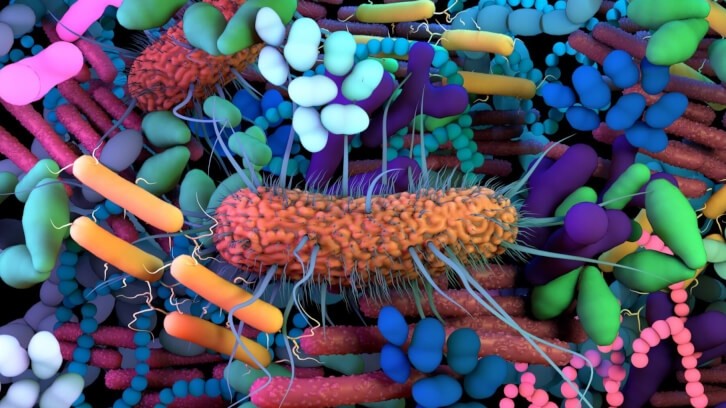Study suggests personalizing fiber supplementation to individual guts

Writing in the journal Gut Microbes, the multi-disciplinary research team shared findings from a recent crossover study that evaluated the effects of one week of supplementation with three different types of dietary fiber in 28 healthy women. Stool and blood samples were collected before and after each intervention to compare gut microbiota composition, short-chain fatty acids (SCFA) levels and immune parameters.
“The results revealed substantial stability and resilience of the overall gut bacterial community toward fiber-induced changes,” the study reported. “However, each supplement had specific effects on gut bacterial alpha and beta diversity, SCFA production and immune changes.”
The work was supported by the Australian Research Council, National Health and Medical Research Council, Cooper Foundation, The Medical Foundation, and the Kick Start Grant from the University of Sydney.
Different types of fibers
The researchers acknowledged the health-promoting role of dietary fiber in feeding beneficial bacteria and releasing microbial metabolites like SCFA as byproduct. However, they noted that human clinical trials have shown varying levels of success in replicating effects detected in preclinical studies.
“This is likely explained by the high inter-individual heterogenicity of the human gut microbiota, each possessing a unique repertoire of enzymes [dispersed across microbial strains] with varying abilities to break down different fiber,” they suggested, citing a study that showed that dietary fiber improved postprandial glucose metabolism only in participants with a microbiota characterized by an elevated Prevotella/Bacteroides ratio.
For their investigation, the researchers selected three structurally distinct dietary fiber supplements: Vitafiber (Isomalto-oligosaccharide), Inulin (fructo-oligosaccharide) and Fibremax (a diverse mix of fiber), all administered as 15 g of soluble fiber a day.
Different gut microbial and immune responses
Through the stool and blood sample analysis, the researchers generated a functional profile of gut microbial and immune responses to the three fiber supplements, showing that aspects of the human gut microbiome are modifiable.
“Inulin consistently exerted the most pronounced effect across individuals, and certain taxa were identified as potential indicators of SCFA production in response to inulin supplementation,” the researchers reported. “This distinguishing feature was not observed for the other fiber supplements.”
Regarding specific changes in gut microbiota composition, Actinobacteria increased significantly with Inulin and Fibremax, while Bacteroidetes levels increased significantly in response to Fibremax but decreased with Inulin. Vitafiber showed no effect on microbiota phyla.
Both Inulin and Fibremax supplementation reduced gut microbiota alpha diversity, with inulin having the most significant effect.
“As microbial diversity is often quoted as beneficial, our study indicates that this may be context-dependent, and reduced diversity is not necessarily an indicator of poor health,” the researchers wrote. “For example, a high-fiber diet intervention was shown to improve glucose homeostasis in type 2 diabetes patients despite a decreased richness of the gut microbiota.”
In addition, a subgroup analysis of participants with higher SCFA levels post-intervention showed that each fiber supplement had a “unique effect on immune cells pre- vs. post supplementation, indicating a differential effect of fiber supplements on immune cell activity.”
The study also reported the induced effects disappeared after a two-week washout period, suggesting that dietary fiber supplementation promoted short-term and reversible alterations to gut microbiota.
“Future large-scale studies are required to confirm these findings and to confirm that these taxa could be used to select the most appropriate dietary fiber for an individual to maximize SCFA production,” the researchers concluded.
Source: Gut Microbes
“Functional profiling of gut microbial and immune responses toward different types of dietary fiber: a step toward personalized dietary interventions”
doi: doi.org/10.1080/19490976.2023.2274127
Authors: Jian Tan et al.
















